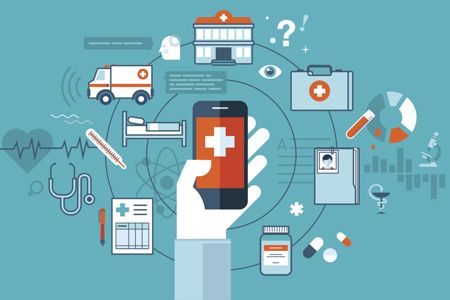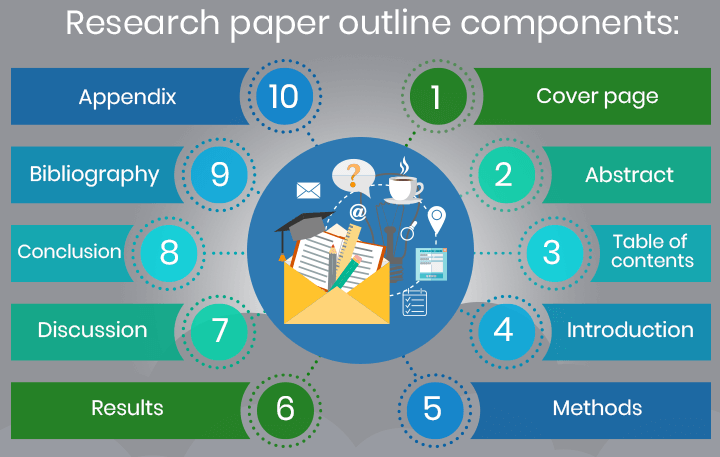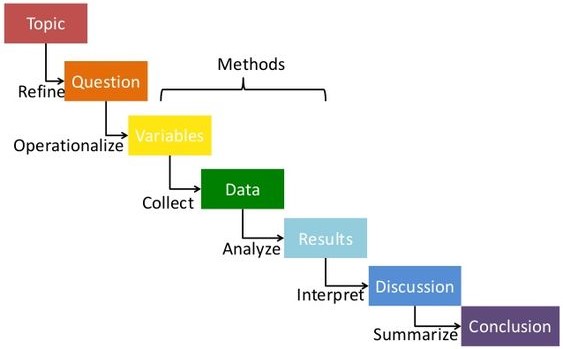
Table of Contents
The field of nursing is rapidly evolving, embracing a wide range of technological advancements to enhance patient care, improve efficiency, and streamline workflows. This technological revolution has opened up exciting new avenues for research, making a research paper about nursing technologies a highly relevant and impactful endeavor.
This comprehensive guide provides a step-by-step framework to help you navigate the process of crafting a compelling and informative research paper about nursing technologies. From choosing a topic to presenting your findings, we will cover all the essential aspects to ensure your research paper stands out.
Understanding Nursing Technologies
Nursing technologies encompass a broad range of tools and systems that are used to support and enhance nursing practice. These technologies can be anything from simple, everyday devices to complex, data-driven systems. The primary goal of nursing technologies is to improve the quality and safety of patient care while also making nurses’ jobs more efficient and rewarding.
Here’s a breakdown of the key aspects of nursing technologies:
Types of Nursing Technologies:
- Electronic Health Records (EHRs): These digital systems store and manage patient health information, facilitating communication and collaboration between healthcare professionals, reducing errors, and improving patient safety.
- Telehealth Platforms: These virtual communication tools enable remote patient monitoring, consultations, and education, expanding access to healthcare for individuals in remote areas.
- Wearable Health Trackers: These devices monitor vital signs, activity levels, and other health data, providing valuable insights into patients’ well-being and allowing for early detection of health issues.
- Medical Imaging Tools: X-ray, ultrasound, MRI, and other imaging technologies are used for diagnosis, monitoring, and treatment planning.
- Point-of-Care Testing Devices: These tools enable quick and easy testing of blood glucose, urine, and other parameters at the patient’s bedside, allowing for faster diagnosis and treatment.
- Robotics and AI: Robotics are being used in surgery and other procedures, while AI is being used to analyze data, predict patient outcomes, and automate tasks.

The Future of Nursing Technologies:
- AI-powered Virtual Assistants: Providing support and guidance to nurses.
- Robotics for Surgical Procedures: Assisting surgeons with delicate tasks.
- Wearable Sensors for Continuous Patient Monitoring: Alerting nurses to changes in vital signs.
- Virtual Reality Simulations for Nursing Education: Providing realistic training scenarios.
Nursing technologies are transforming the nursing profession by enabling nurses to deliver more effective, efficient, and personalized care. As these technologies continue to evolve, it’s essential for nurses to stay informed and embrace the opportunities they offer.
Steps for Writing a Research Paper about Nursing Technologies
1. Choosing a Compelling Topic
The first step in writing a successful research paper about nursing technologies is selecting a topic that resonates with your interests and aligns with your research goals. Consider these factors:
- Current Trends: Explore emerging technologies like telehealth, wearable health devices, robotics in healthcare, and artificial intelligence (AI) applications in nursing. Focus on areas where there’s a gap in knowledge or where existing research needs further exploration.
- Specific Applications: Narrow your focus to a specific area within nursing technologies, such as telemonitoring in critical care, mobile health apps for chronic disease management, or using virtual reality for pain management.
- Impact and Implications: Choose a topic that addresses a significant issue in nursing practice or patient care. Analyze the potential benefits and challenges associated with the technology, its ethical considerations, and its impact on the nursing workforce.
Examples of Potential Research Paper Topics:
- The Impact of Telehealth on Patient Outcomes in Rural Areas
- The Use of Wearable Health Devices for Monitoring Chronic Heart Failure Patients
- Ethical Considerations of Using Artificial Intelligence in Nursing Decision-Making
- Exploring the Effectiveness of Virtual Reality for Managing Post-Surgical Pain
- The Role of Robotics in Assisting Nurses with Patient Mobility and Transfers
2. Conducting Research for Your Paper
Once you have chosen a topic, it’s time to delve into comprehensive research. This stage involves gathering evidence from various sources to support your arguments and provide a strong foundation for your research paper about nursing technologies.
- Literature Review: Begin by conducting a thorough literature review to identify existing research on your chosen topic. Explore scholarly articles, journals, books, and reputable online databases such as PubMed, PhD Nurse Writer, CINAHL, and IEEE Xplore.

- Primary Research: Consider conducting primary research through surveys, interviews, focus groups, or case studies to gather first-hand data about the impact of nursing technologies on patients, nurses, and healthcare systems.
- Secondary Research: Utilize existing data sources like government reports, industry publications, and healthcare statistics to supplement your research.
- Ethical Considerations: Ensure all research methods are conducted ethically and adhere to relevant guidelines and regulations. Obtain informed consent from participants, maintain confidentiality, and ensure data security.
3. Structuring Your Research Paper
A well-structured research paper about nursing technologies presents a clear and logical flow of information, making it easier for readers to understand your arguments and engage with your research.
Structure of a Typical Research Paper:
- Title: A concise and descriptive title that accurately reflects the topic of your research paper about nursing technologies.
- Abstract: A brief overview of your research paper about nursing technologies, summarizing the purpose, methods, findings, and conclusions.
- Introduction: Introduce your topic, provide background information, establish the problem or research question, and outline the purpose and significance of your research paper about nursing technologies.
- Literature Review: Summarize and analyze relevant research findings from existing literature, highlighting gaps in knowledge and identifying areas for further exploration.
- Methods: Describe the research methods used, including data collection techniques, sample size, and data analysis procedures.
- Results: Present the findings of your research in a clear and concise manner, using tables, figures, and charts to illustrate data.
- Discussion: Interpret your findings in relation to existing literature, discuss the implications of your research for nursing practice, and identify limitations of your study.
- Conclusion: Summarize the key findings of your research paper about nursing technologies, restate the significance of your research, and propose future research directions.
- References: List all sources cited in your research paper about nursing technologies using a consistent formatting style (e.g., APA, MLA).

4. Writing Style and Tone
Your writing style should be formal, objective, and unbiased. Use clear and concise language, avoiding jargon and technical terms that might not be familiar to readers.
- Objectivity: Present your findings objectively, avoiding personal opinions or biases.
- Clarity: Use precise language and avoid ambiguous statements. Ensure your research paper about nursing technologies is easy to understand and follow.
- Conciseness: Avoid unnecessary repetition and use only relevant information to support your arguments.
5. Visual Aids and Data Presentation
Visual aids like tables, figures, and charts enhance the clarity and readability of your research paper about nursing technologies. They help readers visualize data, understand complex relationships, and grasp key findings more easily.
- Tables: Use tables to present numerical data in a structured and organized format.
- Figures: Employ figures, such as graphs, charts, and diagrams, to visually represent data and trends.
- Captions: Provide clear and informative captions for all tables and figures, explaining their content and relationship to your research paper about nursing technologies.
6. Editing and Proofreading
Once you have completed writing your research paper about nursing technologies, take time to carefully edit and proofread your work. This crucial step helps ensure your writing is clear, accurate, and error-free.
- Grammar and Punctuation: Check for grammatical errors, typos, and incorrect punctuation.
- Clarity and Flow: Ensure your sentences are concise, well-structured, and flow smoothly.
- Consistency: Maintain consistent formatting throughout your research paper about nursing technologies, including font styles, margins, and headings.
- Citations and References: Verify that all citations and references are complete and accurate.
7. Presenting a Research Paper About Nursing Technologies
After finalizing your research paper about nursing technologies, you may have the opportunity to present your work at conferences, workshops, or academic settings.
- Prepare a Presentation: Develop a concise and engaging presentation that summarizes the key findings of your research paper about nursing technologies.
- Practice Your Delivery: Rehearse your presentation multiple times to ensure smooth delivery and confident presentation.
- Engage with the Audience: Encourage questions from the audience and be prepared to answer them thoughtfully and comprehensively.
Topic Examples for Research Papers about Nursing Technologies
Here are compelling topics to consider when writing a research paper about nursing technologies:
- The Impact of Telehealth on Patient Outcomes in Rural Communities: Explore how telehealth tools (video conferencing, remote patient monitoring) are changing healthcare access and quality of care in underserved areas, focusing on specific nursing-related outcomes like medication adherence, patient satisfaction, and hospital readmission rates.
- Artificial Intelligence in Nursing Assessment and Diagnosis: Analyze the potential and limitations of AI-powered tools (like machine learning algorithms) for assisting nurses in patient assessment, early disease detection, and personalized care planning. Consider ethical concerns, data privacy, and the role of human expertise.
- Wearable Technology and Remote Patient Monitoring in Chronic Disease Management: Investigate the effectiveness of wearable devices (smartwatches, fitness trackers) in collecting physiological data and empowering patients with chronic conditions (diabetes, heart disease). Analyze the role of nurses in interpreting data, providing support, and fostering patient engagement.
- Robotics in Nursing Care: Exploring the Benefits and Challenges: Discuss the use of robots in tasks like medication delivery, patient repositioning, and wound care. Examine the potential benefits (improved efficiency, reduced workload, enhanced patient safety) and challenges (ethical implications, cost, potential job displacement) of incorporating robotics into nursing practice.
- Virtual Reality Applications for Pain Management and Rehabilitation: Explore the use of VR technology to manage pain, reduce anxiety, and facilitate rehabilitation in various settings. Analyze the effectiveness of VR-based interventions for specific conditions (burn injuries, chronic pain, post-surgical recovery), considering factors like cost, accessibility, and patient acceptance.
- The Role of Big Data Analytics in Optimizing Nursing Workflow and Resource Allocation: Examine how big data analysis can be used to identify patterns in patient data, predict resource needs, and improve the efficiency of nursing care. Consider the implications for workforce management, staffing models, and patient flow optimization.

Avoiding Common Mistakes in Your Research Paper
Crafting a compelling and informative research paper about nursing technologies requires careful consideration and execution. Here are some common mistakes to avoid:
1. Failing to Clearly Define Your Scope: A research paper about nursing technologies is vast. Narrowing your focus is crucial. Are you exploring the impact of a specific technology like telemedicine? Or are you examining the ethical implications of AI in nursing? Defining your scope helps you stay focused and avoid superficial analysis.
2. Neglecting Thorough Literature Review: A strong research paper about nursing technologies requires a comprehensive review of existing literature. This includes scholarly articles, industry reports, and relevant publications. Failing to thoroughly review the existing research can lead to redundant findings and missed opportunities for insightful analysis.
3. Overlooking Ethical Considerations: A research paper about nursing technologies often touches upon sensitive topics like patient privacy, data security, and equitable access to care. Neglecting to address these ethical considerations can undermine the credibility and impact of your paper.
4. Lack of Critical Analysis: A research paper about nursing technologies should go beyond simply describing existing technologies. It should delve into critical analysis of their impact, benefits, and limitations. Providing a nuanced perspective strengthens the argument and demonstrates a deeper understanding of the subject.
5. Ignoring Practical Applications: While research papers about nursing technologies should focus on the theoretical aspects, grounding them in practical applications is essential. How can these technologies be implemented in real-world settings? How can they benefit nurses and patients? Addressing these questions adds value and relevance to your research.
6. Inadequate Methodology: If your research paper about nursing technologies involves empirical research, ensure the methodology is robust and appropriate for the chosen topic. Clearly explain the methods, data collection techniques, and analysis procedures used.
7. Neglecting Visual Aids: A research paper about nursing technologies can benefit greatly from visual aids such as charts, graphs, and images. These elements help explain complex concepts, illustrate trends, and enhance overall engagement.
8. Overlooking Conclusion and Future Directions: A strong conclusion summarizes key findings and reinforces the significance of your research. Additionally, explore potential future directions for research or practical implementation within the field of nursing technologies.
By avoiding these common pitfalls, you can create a strong and insightful research paper about nursing technologies that contributes to the field and captivates your audience.
Frequently Asked Questions About Nursing Technologies
- What are some of the most common nursing technologies used today?
- Electronic Health Records (EHRs): Digital systems to store and manage patient health information.
- Telehealth platforms: Virtual communication tools for remote patient monitoring and consultations.
- Wearable health trackers: Devices that monitor vital signs and activity levels.
- Medical imaging tools: X-ray, ultrasound, MRI, etc., used for diagnosis and monitoring.
- Point-of-care testing devices: Tools for quick and easy testing of blood glucose, urine, etc.
- How do nursing technologies improve patient care?
- Enhanced communication: Improved collaboration between healthcare providers and patients.
- Improved accuracy and efficiency: Reduced errors, faster diagnosis and treatment.
- Increased patient engagement: Empowering patients to actively participate in their own care.
- Remote monitoring and care: Expanding access to healthcare for individuals in remote areas.
- What are the challenges associated with implementing nursing technologies?
- Cost: Implementing and maintaining new technologies can be expensive.
- Training: Staff requires adequate training to use new technologies effectively.
- Data security: Protecting sensitive patient information is crucial.
- Interoperability: Ensuring different systems can communicate and exchange data.
- Resistance to change: Some nurses may be hesitant to adopt new technologies.
- How do nursing technologies impact the future of nursing?
- Increased focus on preventative care and patient education.
- Greater emphasis on data analysis and decision-making.
- Shift towards personalized and tailored care.
- Increased autonomy and independence for nurses.
- What are the ethical considerations related to nursing technologies?
- Data privacy and security: Ensuring patient data is protected from unauthorized access.
- Algorithmic bias: Avoiding discrimination based on race, ethnicity, or other factors.
- Human connection: Balancing technology with the importance of human interaction.
- Informed consent: Ensuring patients understand and consent to the use of technologies.
- What are some examples of specific nursing technologies that are currently being developed?
- AI-powered virtual assistants: Providing support and guidance to nurses.
- Robotics for surgical procedures: Assisting surgeons with delicate tasks.
- Wearable sensors for continuous patient monitoring: Alerting nurses to changes in vital signs.
- Virtual reality simulations for nursing education: Providing realistic training scenarios.
- How can nurses stay up-to-date with the latest nursing technologies?
- Attend conferences and workshops.
- Read professional journals and publications.
- Network with colleagues in the field.
- Take online courses and certifications.
- What are the career opportunities for nurses who specialize in nursing technologies?
- Clinical informaticist: Designing and implementing health information systems.
- Telehealth nurse: Providing remote patient care and monitoring.
- Technology specialist: Supporting and troubleshooting nursing technologies.
- Researcher: Developing and evaluating new nursing technologies.
- What are the implications of nursing technologies for patient safety?
- Potential for improved accuracy and reduced errors.
- Need for careful implementation and training to avoid unintended consequences.
- Importance of monitoring and evaluating the effectiveness of technologies.
- What are the potential benefits of nursing technologies for nurses themselves?
- Improved work-life balance: Reducing administrative burdens and allowing for more time with patients.
- Enhanced job satisfaction: Providing opportunities for professional growth and innovation.
- Greater autonomy and control: Empowering nurses to make informed decisions about patient care.
Final Thoughts
Writing a research paper about nursing technologies is a rewarding and impactful endeavor. Following this comprehensive guide will enable you to craft a compelling and insightful research paper that contributes to the growing body of knowledge in the field of nursing.

Choose a relevant topic, conduct thorough research, structure your paper logically, and present your findings clearly and effectively. Your research paper about nursing technologies can contribute to improving patient care, enhancing nursing practice, and driving further innovation in the field.
Get Customized Nursing Research Paper Writing Service
At PhD Nurse Writer, we can help you to write an original and well-articulated research paper about nursing technologies and other topics. Our service covers topic selection, paper writing, proofreading, editing, formatting and plagiarism removal. Apart from nursing research papers, we also provide help with writing nursing essays, case studies and dissertations.





